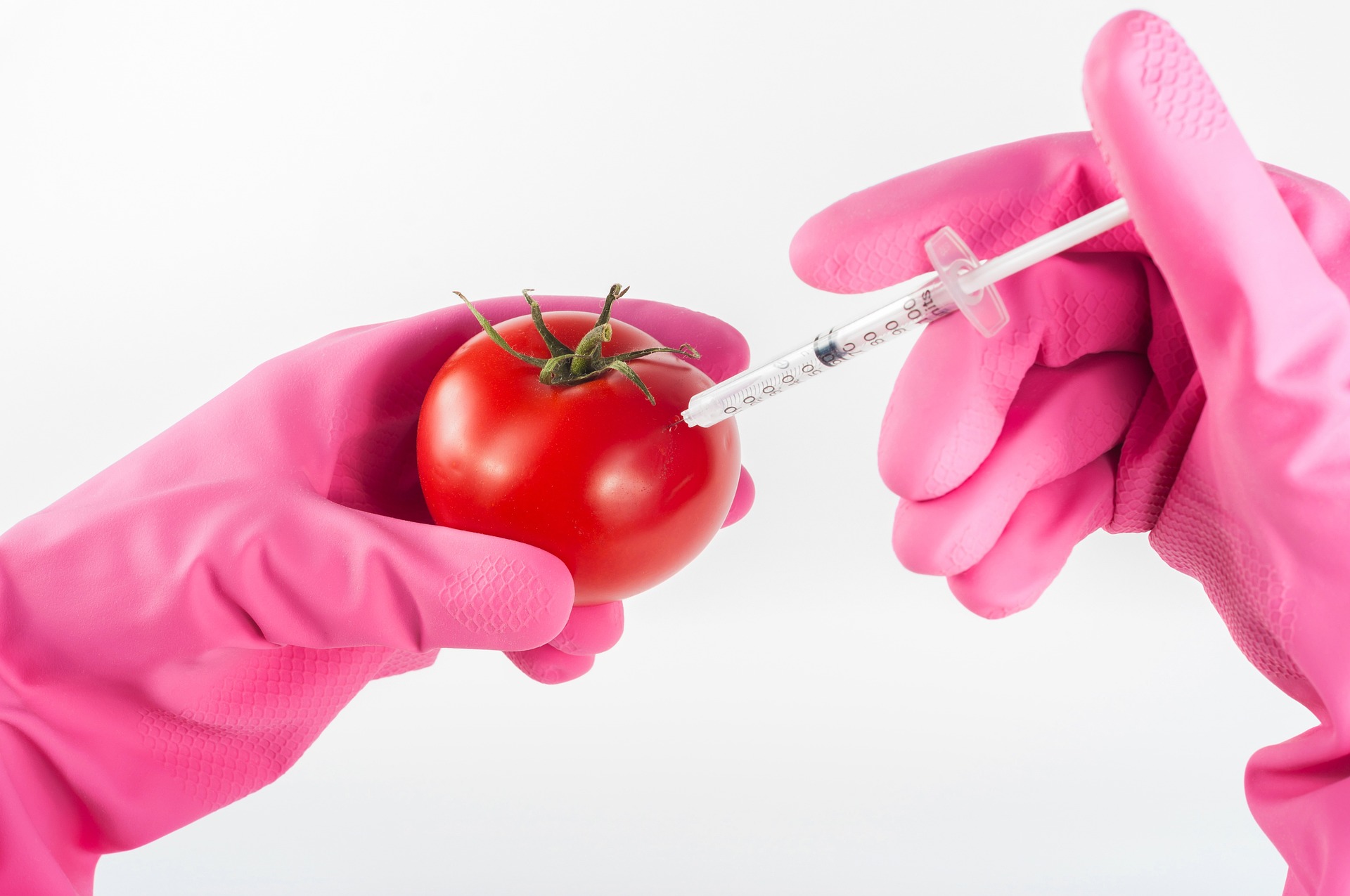GMO

Genetically Engineered Foods (GMO’s)
Genetically altered foods are altered by introducing molecules from a plant, animal, bacteria, virus, or chemical into them in a way that does not occur naturally. This is done to add or improve some quality of the food.
For example, they may inject molecules from a species of tomato that is extremely resistant to mold into a corn plant to make the corn extremely resistant to mold.
Scientists have been able to make plants that produce their own pesticides, and plants that can’t be destroyed by weed killer.
Creating Antibiotic-resistant Strains
They often use antibiotics as markers. The antibiotics are mixed with the molecules and they are injected together into the food. This allows scientists to trace their progress. If the antibiotic made it in, then the desired molecule made it in too.
If the plant is resistant to bacteria from the antibiotic, then they their experiment was a success. This wide use of antibiotics may be contributing to the growing number of antibiotic resistant strains of bacteria. This practice was so looked down upon that many manufacturers have stopped and switched to using antibiotic-resistant molecules which is also feared to increase the number of antibiotic resistant strains of bacteria.
Allergy Hazard
There may also be an allergy hazard for someone allergic to peanuts for example, when peanut molecules are injected into another food without the public’s knowledge.
Most common GMO foods:
In the US over 90% of all corn, canola, cottonseed oil, soybeans and sugar beets are genetically modified. As well as products made from these ingredients.
New Disclosure Law
Prior to 2018, food labels did not have to disclose if a food contained genetically engineered ingredients. Now it must state “bioengineered” or “derived from bioengineering” with the bioengineered symbol.
Organic foods cannot be genetically altered. In other words, genetically altered foods cannot be labeled “Organic”.
Genetically altered foods have been used in our food supply for decades without our knowledge or consent, and this process was not included in the labeling.
Unpredictable Results
Just as our cells can react haphazardly to unrecognizable substances, plants that have been genetically altered sometimes react in a way not expected. For instance, a molecule from one plant is inserted into another and the new plant grows blue flowers where neither plant had that capability before.
Genetically altering our plants not only causes unpredictable changes in our plants, but probably negatively affects the animals that fed on them, our families, future generations and the environment.
- Important Information. I am a clinical nutritionist and holistic health practitioner. I am not a medical doctor. This article is for informational purposes only and is not intended to be a substitute for proper medical treatments or care. Always consult with your medical doctor before making any changes to your diet, lifestyle, or fitness programs.